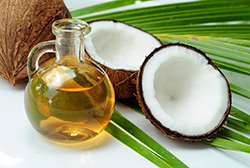
These days, there are countless products marketed to consumers, many which can be purchased over the counter from a local drug or grocery store.
Whether advertised for pain relief, weight loss, mood stabilizers, or more, over the counter substances should be taken with caution, particularly as these types of substances are not as widely regulated.
Whether a person is looking for a natural alternative for a prescription medication or is looking to avoid side effects from drugs, alternative substances can be appealing.
Pros and Cons of Over the Counter Herbs and Vitamins
With a wealth of information literally available at our fingertips through the internet access, more people are likely to research other options that might be available to them, self-diagnose and self-prescribe.
Since alternative substances, such as herbs, vitamin mixtures, tinctures, and more can easily be purchased without a prescription from a physician, many people may be more likely to try an alternative substance in attempt to find a solution for a condition they may be struggling with.
Dietary supplements, including herbs and vitamins, are not subject to the same type of scientific regulations than medications. The Food and Drug Administration (FDA) does regulate dietary supplements but under a different set of regulations from those that are used for conventional medications.
Many manufacturers can include a claim that their product addresses a certain condition or is helpful for a specific reason as long as they have some kind of supporting research and indicate that their claim has not been evaluated by the FDA.
This can lead to many misinterpretations and misunderstandings about alternative supplements, which can be tricky for the consumer to navigate through.
Determining What is Right For You
 As with any type of plan for addressing your health, it is important to collaborate with specialists who can help you determine what course of treatment is most appropriate for you, for whatever condition you may be dealing with.
As with any type of plan for addressing your health, it is important to collaborate with specialists who can help you determine what course of treatment is most appropriate for you, for whatever condition you may be dealing with.
If you are interested in taking an alternative supplement, be sure to discuss whether or not this is something that may be effective for you or if this can be integrated in your current treatment plan. Avoid self-diagnosis and self-prescribing,, as this can result in adverse effects, even with over the counter supplements.

About the Author: Crystal is a Masters-level Registered Dietitian Nutritionist (RDN) with a specialty focus in eating disorders, maternal/child health and wellness, and intuitive eating. Combining clinical experience with a love of social media and writing, Crystal serves as the Special Projects Coordinator for Eating Disorder Hope/Addiction Hope, where her passion to help others find recovery and healing is integrated into each part of her work.
As a Certified Intuitive Eating Counselor, Crystal has dedicated her career to helping others establish a healthy relationship with food and body through her work with EDH/AH and nutrition private practice.
The opinions and views of our guest contributors are shared to provide a broad perspective of addictions. These are not necessarily the views of Addiction Hope, but an effort to offer discussion of various issues by different concerned individuals.
We at Addiction Hope understand that addictions result from a combination of environmental and genetic factors. If you or a loved one are suffering from an addiction, please know that there is hope for you, and seek immediate professional help.
Reviewed By: Jacquelyn Ekern, MS, LPC on March 14, 2016
Published on AddictionHope.com

